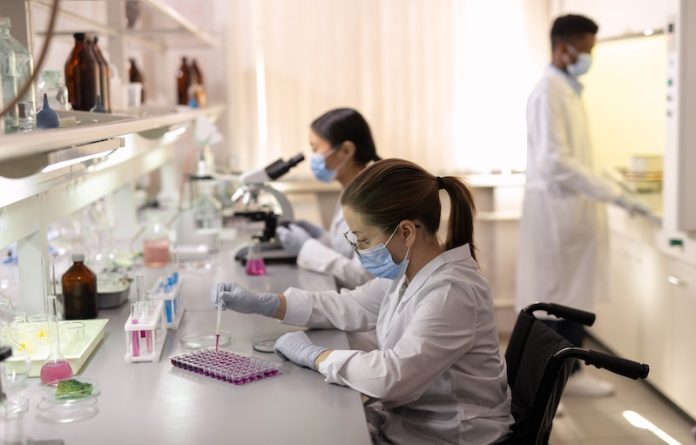
COVID-19 is caused by the SARS-CoV-2 virus, which has undergone various mutations resulting in the emergence of different variants.
These variants have different genetic sequences and some of them are considered more contagious, more virulent, and potentially more resistant to vaccines than the original strain.
In a new study from Yale, scientists have found a new class of oral drugs that can inhibit a diverse range of resistant COVID-19 variants.
The drugs act directly on human cells by targeting a master regulatory complex known as mSWI/SNF.
This complex regulates genes that turn on and off, and it was found to play a role in activating the cellular receptor ACE-2, to which SARS-CoV-2 binds in order to enter and infect cells.
The team found disrupting mSWI/SNF could prevent viral entry into human cells, and they discovered that small molecule inhibitors that target mSWI/SNF were effective against multiple variants of COVID-19.
The drugs are currently in phase I clinical trials as a treatment for several cancers, but the researchers believe they can potentially be repurposed to inhibit both current and future coronaviruses.
The team says the dwindling effectiveness of existing treatments further highlights the critical need for new classes of drugs to combat drug resistance and infection.
The study also provides insight into why certain people and specific cell types may be more susceptible to coronavirus than others.
Future work is needed to explore the underlying biology of why some people are asymptomatic while others experience severe infection and death.
COVID-19 will not be the last severe viral outbreak, and the researchers believe that their work may hold the key to slowing or stopping the next outbreak.
The lab studies coronaviruses circulating in wild bats, which are believed to pose the highest risk for infecting humans and causing the next pandemic.
If you care about liver health, please read studies about dairy foods linked to liver cancer, and coffee drinkers may halve their risk of liver cancer.
For more information about liver health, please see recent studies that alternate day fasting could benefit people with fatty liver disease, and results showing vitamin D could help prevent non-alcoholic fatty liver disease.
The study was conducted by Cigall Kadoch et al and published in Nature Genetics.
Copyright © 2023 Knowridge Science Report. All rights reserved.



